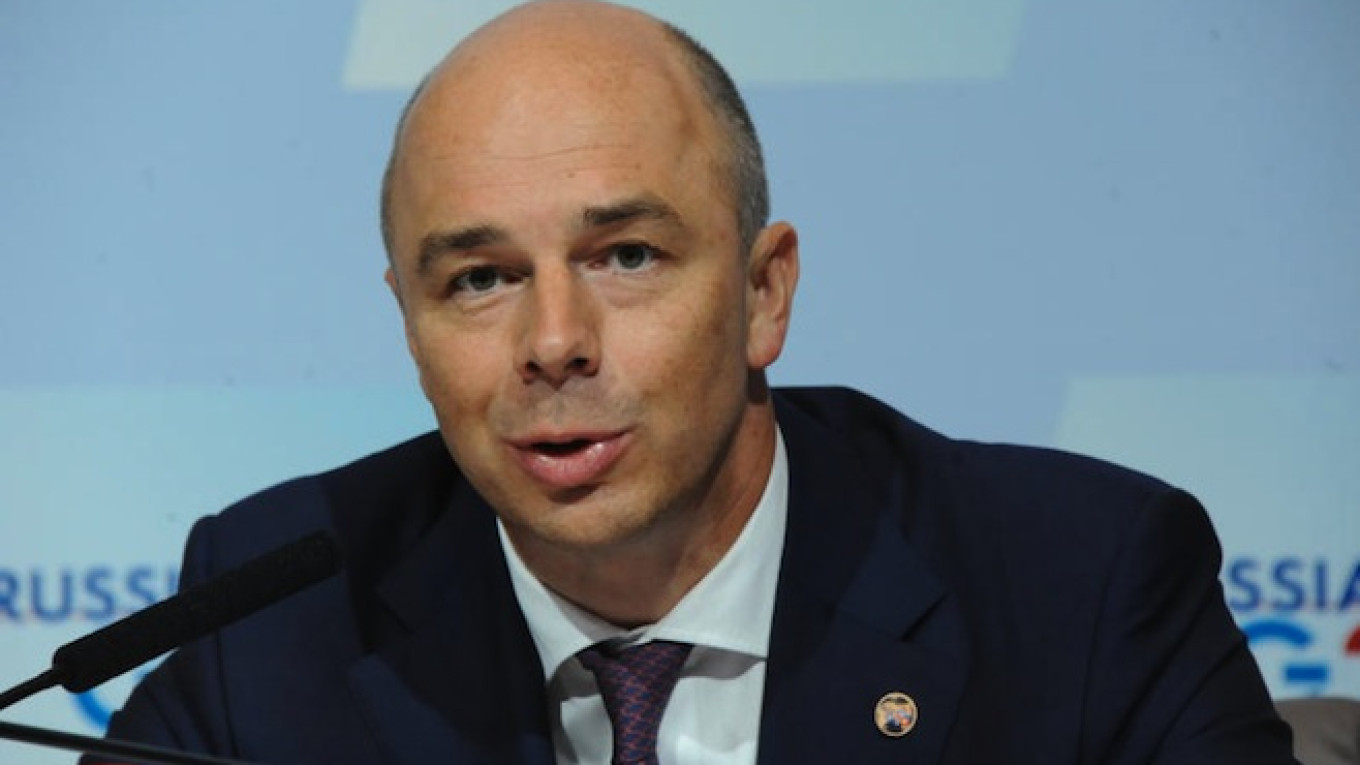Russia will need to make swinging cuts to government spending in response to the “new realities” of a prolonged period of low oil prices, Finance Minister Anton Siluanov said Wednesday.
Siluanov, whose ministry relies on the energy industry for about half its income, said the current budget for 2016 would need an average oil price of $82 to balance. Crude is currently trading at just over $30 per barrel.
Speaking at the Gaidar Forum in Moscow, Siluanov said the budget should be recalculated to assume an average oil price for the year of $40, the Reuters news agency reported.
"Our task is to adapt our budget to the new realities," Reuters quoted him as saying. "There are still a lot of decisions to be made when it comes to budget policy."
“If we don't do that, we will see a repeat of what happened in 1998-99," he added, according to news agency Interfax, referring to the government default and economic crash that followed.
Russian government departments have already been ordered to submit proposals for 10 percent cuts in non-essential spending totaling more than 500 billion rubles ($6.5 billion), Siluanov said.
The current budget for 2016, adopted late last year, assumes a $50 oil price and a deficit of 3 percent of GDP. The Finance Ministry in December warned that $40 oil would inflate the deficit to around 5 percent and exhaust Russia's $59-billion-dollar reserve fund by the end of the year.
Speaking at the same forum, Prime Minister Dmitry Medvedev said: "One needs to prepare for the worst scenario," according to Reuters.
Russia's economy is already mired in its longest recession since Vladimir Putin came to power in 1999. Output is expected to have contracted by 3.7 percent last year, and the Central Bank warned in December that if the price of oil averaged $35 in 2016 the economy would shrink a further 2-3 percent this year.
A Message from The Moscow Times:
Dear readers,
We are facing unprecedented challenges. Russia's Prosecutor General's Office has designated The Moscow Times as an "undesirable" organization, criminalizing our work and putting our staff at risk of prosecution. This follows our earlier unjust labeling as a "foreign agent."
These actions are direct attempts to silence independent journalism in Russia. The authorities claim our work "discredits the decisions of the Russian leadership." We see things differently: we strive to provide accurate, unbiased reporting on Russia.
We, the journalists of The Moscow Times, refuse to be silenced. But to continue our work, we need your help.
Your support, no matter how small, makes a world of difference. If you can, please support us monthly starting from just $2. It's quick to set up, and every contribution makes a significant impact.
By supporting The Moscow Times, you're defending open, independent journalism in the face of repression. Thank you for standing with us.
Remind me later.


